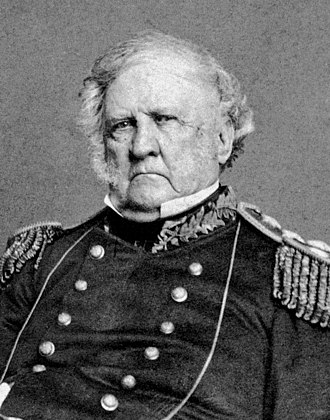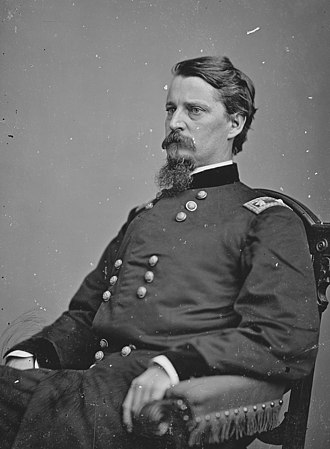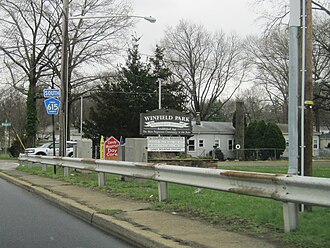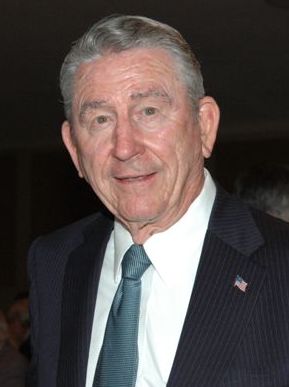Discover Your Roots
SIGN UPDiscover Your Roots
SIGN UPWinfield is a male name of English origin, meaning "From Wina's Field." It is derived from the Old English elements "wina," meaning "friend," and "feld," meaning "field." The name Winfield has a rich history and is associated with various places and notable individuals. It can be found in places across Canada and the United States, including Alberta, British Columbia, Alabama, Illinois, Kansas, and more. Notable figures with the given name Winfield include military leaders such as Winfield Scott and Winfield Scott Hancock, as well as politicians like Winfield Dunn and Winfield Ervin Jr. The name also appears as a surname, associated with individuals such as Dave Winfield, a Hall of Fame baseball player, and Lauren Winfield, an English cricketer. Additionally, Winfield has connections to commerce, including a brand of cigarettes and a carburetor company.

Winfield Scott (1786–1866) was a prominent American military leader and political figure. He served as Commanding General of the United States Army from 1841 to 1861, participating in the War of 1812, American Indian Wars, Mexican–American War, and early stages of the American Civil War. Nicknamed "Old Fuss and Feathers" for his emphasis on military etiquette, Scott was the Whig Party's presidential nominee in 1852. Born in Virginia, he joined the army in 1808 and rose through the ranks, showcasing his military prowess in various conflicts. Scott's achievements included negotiating the end of the Black Hawk War, leading campaigns in the Mexican–American War, and peacefully resolving the Pig War in Washington Territory. Despite being a Virginia native, he remained loyal to the Union during the Civil War and served as an adviser to President Abraham Lincoln. Scott is widely regarded as one of the most accomplished generals in U.S. history. He passed away in 1866, leaving a lasting legacy as a military leader and strategist.

Winfield Scott Hancock, born on February 14, 1824, was a distinguished United States Army officer and the Democratic nominee for the President of the United States in 1880. Renowned for his exemplary leadership during the Civil War, particularly at the Battle of Gettysburg in 1863, his military career spanned four decades, including service in the Mexican–American War. After the Civil War, Hancock participated in the military Reconstruction of the South, the U.S.'s western expansion, and Native American conflicts at the Western frontier, culminating with the Medicine Lodge Treaty. A war hero at Gettysburg and a staunch Unionist, his presidential candidacy in 1880 was narrowly defeated. Beyond his military prowess, Hancock's personal life was marked by his marriage to Almira Russell and the tragic loss of their two children, Russell and Ada. Despite his defeat in the presidential race, Hancock continued to serve the public, overseeing President Ulysses S. Grant's funeral procession in 1885. His legacy endures as a symbol of dedication and leadership in the annals of American history.

Winfield is an Australian cigarette brand, currently owned by multinational company British American Tobacco. The brand was first launched in 1972 and has been mainly sold in Australia and New Zealand, as well as in several other countries around the world. In 2004, it was the largest brand in Australia, shipping 853 billion cigarettes. However, in response to court enforceable undertakings by the Australian Competition & Consumer Commission in 2005, major tobacco companies, including British American Tobacco, had to remove certain terms from their packaging and fund anti-smoking consumer education campaigns. Winfield was a major sponsor of sports in Australia, particularly in motorsports, with sponsorships of the Williams F1 Team and the Australian motor racing team Gibson Motorsport. The brand also sponsored the Honda Team in the Australian Superbike Championship and the regular Superbike World Championship. Winfield's sponsorship extended to other sports, including the New South Wales Rugby League premiership. The brand has faced controversy, including reports of fake Winfield cigarettes being smuggled. As of 2016, no tobacco products are manufactured in Australia, and British American Tobacco stopped manufacturing Winfield in 2015.

Winfield Township, also known as Winfield Park, is a municipality in Union County, New Jersey, with a population of 1,423 as of the 2020 United States census. It is the sixth-smallest municipality in the state and shares a ZIP Code with Linden. Established on August 6, 1941, Winfield Township was formed from parts of Clark and Linden. The township is home to the Winfield Park Mutual Ownership Defense Housing Project, a 700-unit development originally built for defense workers of the Kearny, New Jersey, shipyards. The project, designed by architect John T. Rowland, offers a variety of housing options, from single-family homes to apartments. The town features an elementary school, shopping center, Senior Citizen Hall, Community Center, and other amenities. The development committee, under the leadership of Colonel Lawrence Westbrook, advocated for housing in the northern New Jersey area and played a key role in the development of Winfield Park. The committee's policies aimed to ensure the housing conformed with the National Housing for Defense Act of 1940 and the mutual housing program. The site selection process for the housing project involved the assistance of experts from the United States Housing Authority and the New Jersey State Planning Commission.

Bryant Winfield Culberson Dunn (July 1, 1927 – September 28, 2024) was an influential American figure who made a mark as a businessman and politician. Serving as the 43rd governor of Tennessee from 1971 to 1975, Dunn achieved the distinction of being the state's first Republican governor in half a century. He showed his dedication to public service by remaining active in the Republican Party and the medical field following his gubernatorial term. Born in Meridian, Mississippi, Dunn's family background in politics and law likely influenced his career path. He served in the U.S. Navy during World War II and later obtained a B.B.A. from the University of Mississippi before pursuing a career in dentistry. Inspired by conservative leaders such as Barry Goldwater, Dunn entered the political arena and eventually secured the Republican nomination for governor, leading to his historic victory in the general election. During his tenure, Dunn worked to bridge political divides and initiated key policy changes, such as increasing the state sales tax to fund infrastructure projects and providing pay raises to state employees. His contributions to public service extended beyond his time as governor, and he continued to actively participate in political and medical spheres until his passing in 2024.
All images displayed on this page are sourced from Wikipedia or Wikimedia Commons.We use these images under their respective Creative Commons or public domain licenses. Wherever applicable, author attributions and license information are provided. If you believe an image is used incorrectly or outside its license terms, please contact us so that we can review and correct the issue.